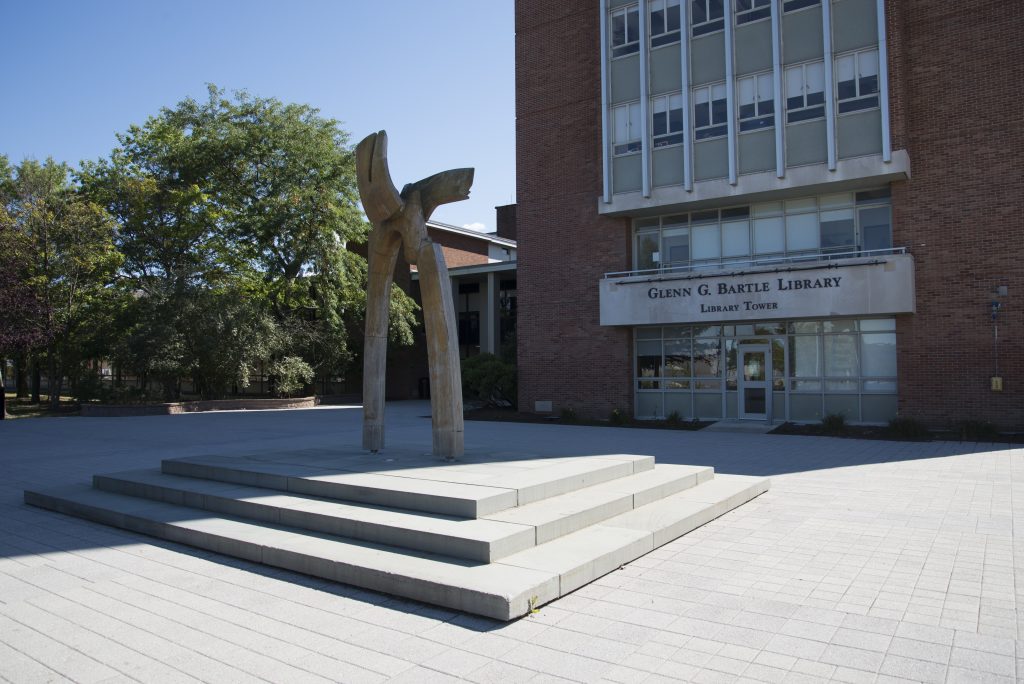In wake of the Black Lives Matter movement and protests going on across the nation, the Binghamton University Libraries released an anti-racism statement last Wednesday.
The statement starts by saying that the faculty and staff of the Libraries are saddened by the deaths of Ahmaud Arbery, Rayshard Brooks, George Floyd, Breonna Taylor and other unarmed Black people at the hands of police officers. Then, it recognized its role in systematic racism as members of a predominantly white institution (PWI) and its duty to advance anti-racism practices.
“Their deaths are the result of a white supremacist society in which violence is both enabled and effaced by structural racism,” the statement read. “We recognize that a range of institutional norms and practices contribute to the systemic enablement, enactment and rationalization of racism; therefore, we acknowledge our institutional responsibility for addressing racism within the Libraries and leveraging our resources to advance other anti-racist work ongoing at the University and beyond.”
The BU Libraries outlined two initial steps to address institutionalized racism and create resources for students. The first step is an audit of library materials that will help generate data for a study on the ways racism permeates library resources. This data will then be analyzed to identify actionable reforms the BU Libraries can take and effective ways to employ resources toward further anti-racist work. Timothy Lavis, assistant head of Reader Services for the BU Libraries, wrote in an email that the audit is being done to develop a collective vocabulary and mutual understanding of these issues.
“One part of the audit will address our collections — the materials we hold, the resources we offer, etc. — so that we can move forward with efforts to acquire materials and develop resources that are more inclusive and challenge or attenuate some of the hegemonic views [which] predominate in academic libraries,” Lavis said. “The other part of the audit will focus on an examination of our communications and other services, working to ensure we are communicating in an inclusive way and addressing the needs of our diverse body of patrons.”
The second step outlined in the statement was the creation of a resource guide to help support all faculty, students and staff looking to decolonize their course curricula or learn about and research topics related to anti-racism, systemic racism and racial justice. The guide is separated into several categories, including arts and culture, gender and sexuality, healthcare and policing and the justice system.
Jennifer Embree, subject librarian for psychology and biology, wrote in an email that one of the purposes of the guide is to support a more intersectional and interdisciplinary approach to research across campus that will change over time.
“The creators of the guide intend for this resource guide to be a living document that changes and develops based on community feedback,” Embree wrote. “The categories that are included now may, and most likely will, change and evolve over time based on feedback that is received.”
The statement ends with the BU Libraries recognizing themselves as members of a PWI, stating that it is their duty to repair the effects of institutionalized racism and advance anti-racism practices.
“We acknowledge that leadership for repairing the damage of systemic racial injustice must come from PWIs such as [BU] Libraries,” the statement read. “Our core mission is to bring people and information together and to provide information reflective of the cultures, experiences and perspectives of all people. We acknowledge that in order to do this, we must pay attention to ways marginalized perspectives have been suppressed by white supremacy.”
Lavis wrote the term “PWI” was included in the statement to help readers understand the background of the BU Libraries and the perspectives predominant in it.
“When a PWI simply ignores systemic racism, [its] inaction is not actually a neutral position,” Lavis wrote. “Rather, that inaction serves to support the existing power structures that underpin and enable systemic racism.”
Students are encouraged to endorse the Libraries’ anti-racism statement through a form at the bottom of it. Patricia Ebrahim, a junior majoring in integrative neuroscience, said the statement is a step in the right direction for an institution meant to spread knowledge to students.
“Libraries are meant to be centers of knowledge,” Ebrahim said. “It’s important that libraries present information in a way that isn’t centered around only one group’s perspective. I think it’s awesome that the library is moving toward portraying information in a way that is more welcoming to everyone.”



